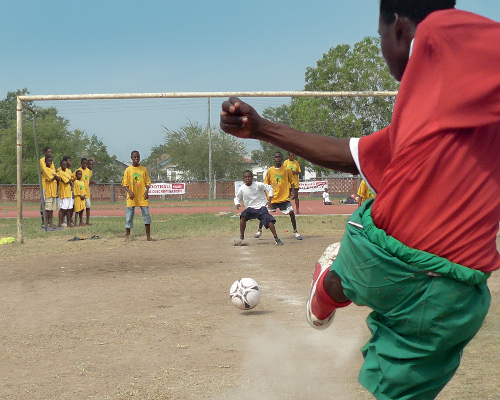TackleAfrica: One game can save lives
In Africa, on every patch of available ground at any given time, you can be sure to find a game of football taking place.
Balls might be made from plastic bags tied with string, crumpled up paper or leather - as long as it can be kicked, there will be a game.
Across the world, 35 million people are living with HIV and Sub-Saharan Africa remains the area most heavily affected by the HIV epidemic. One group particularly vulnerable are young African people.
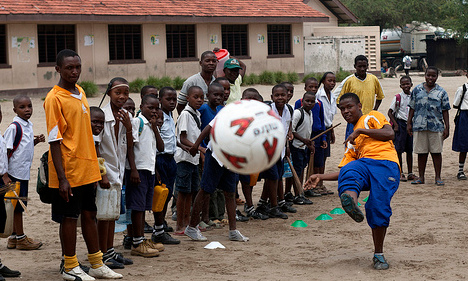
TackleAfrica are an organisation who is looking to combine all of these elements to make a real difference. Their unique proposition helps the youth in Africa learn about sexual health, relationships and HIV through football coaching.
By designing interactive football drills they can share education on how to avoid getting HIV, how to live with HIV if someone is already positive and how to support others to do the same.
How they do it
TackleAfrica train local coaches, youth leaders and teachers from partner organisations to effectively deliver life-saving messages about HIV. This way, the programmes are all locally led, sustainable and targeted to the local needs of the young people.
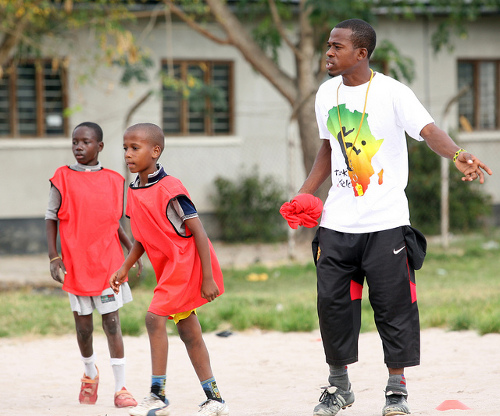
Typically, they will work with a group of coaches for two to three years until they are fully trained TackleAfrica coaches.
Ndunda Mukonyo, lifelong Liverpool FC fan and TackleAfrica senior project officer for Kenya, has been leading TackleAfrica's programmes in Nairobi and across Kenya for three years.
"Football in Africa is incredibly popular and a great way of engaging with young people, so we use football coaching to educate young Africans about sexual health, relationships and HIV," said Ndunda.
The education drills TackleAfrica have developed specifically educate about HIV prevention.
In one example, the players are trying to pick a pass to the coach who is surrounded by defenders. The coach represents a body, while the defenders are white blood cells. The removal of the defenders represents how HIV breaks down the human body's natural defence systems.
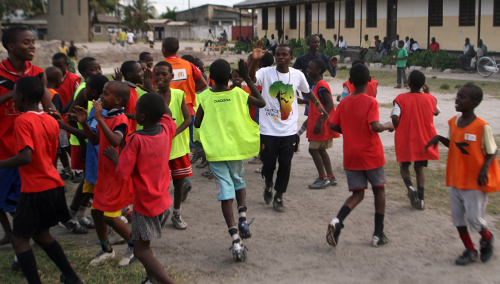
Laura Brooks, TackleAfrica's coach development officer in Kenya, said: "The most rewarding moments come when you hear of actual behaviour change, a young player telling you they now have the confidence to get an HIV test, or a female coach saying they finally asked their boyfriend to use a condom for the first time.
"Like so many people, I love football, so coaching and playing is obviously a great way to spend my days, but those moments are when you realise you may just have made a difference."
Standard Chartered and TackleAfrica
Standard Chartered's HIV education for prevention programme, Living with HIV, works on the ground with local HIV-non-profit organisations to find ways to support and complement community projects.
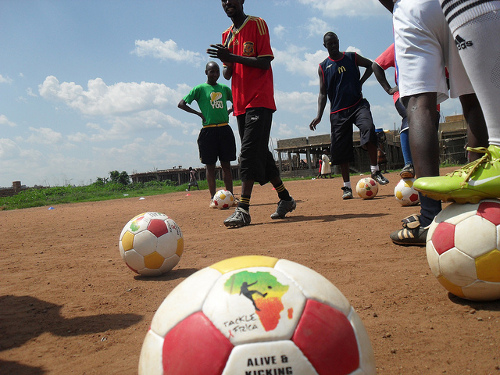
Following a 2012 World AIDS Day event at the Houses of Parliament, where Standard Chartered made a plea for more 'football-based HIV programming', Charlie Gamble, CEO, TackleAfrica, recognised the opportunity for the two organisations to become partners.
For World AIDS Day this year, Liverpool FC teamed up with Standard Chartered to raise awareness about HIV and share knowledge. On Wednesday's match against Norwich, fans may have seen TackleAfrica's logo on the warm up T-shirts the players were wearing.
Plans are also in place for TackleAfrica to train the Liverpool FC Foundation in how to add effective HIV and sexual health messaging into their community programmes.
This is just the start of the partnership, as Standard Chartered and TackleAfrica look to work together to reach more of the people affected by HIV.
